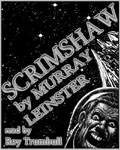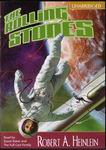
 Short Science Fiction Collection Vol. 016
Short Science Fiction Collection Vol. 016
By various; Read by various
10 Zipped MP3 Files or Podcast – Approx. 3 Hours 19 Minutes [UNABRIDGED]
Publisher: LibriVox.org
Published: May 2009
Science fiction (abbreviated SF or sci-fi with varying punctuation and case) is a broad genre of fiction that often involves sociological and technical speculations based on current or future science or technology. This is a reader-selected collection of short stories, first published between 1951 and 1962, that entered the US public domain when their copyright was not renewed.
Podcast feed: http://librivox.org/bookfeeds/short-science-fiction-collection-vol-016.xml
iTunes 1-Click |SUBSCRIBE|
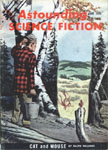 All Day September
All Day September
By Roger Kuykendall; Read by Bellona Times
1 |MP3| – [UNABRIDGED]
Publisher: LibriVox.org
Published: May 19th, 2009
Some men just haven’t got good sense. They just can’t seem to learn the most fundamental things. Like when there’s no use trying—when it’s time to give up because it’s hopeless…
From Astounding Science Fiction June 1959.
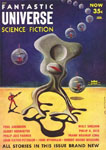 Beyond The Door
Beyond The Door
By Philip K. Dick; Read by Gregg Margarite
1 |MP3| – Approx. 14 Minutes [UNABRIDGED]
Publisher: LibriVox.org
Published: May 19th, 2009
Did you ever wonder at the lonely life the bird in a cuckoo clock has to lead—that it might possibly love and hate just as easily as a real animal of flesh and blood? Philip Dick used that idea for this brief fantasy tale. We’re sure that after reading it you’ll give cuckoo clocks more respect. From Fantastic Universe January 1954.
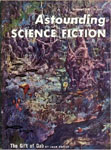 Blessed Are the Meek
Blessed Are the Meek
By G.C. Edmondson; Read by M.White
1 |MP3| – Approx. 11 Minutes [UNABRIDGED]
Publisher: LibriVox.org
Published: May 19th, 2009
Every strength is a weakness, and every weakness is a strength. And when the Strong start smashing each other’s strength … the Weak may turn out to be, instead, the Wise. This story was first published in the September 1955 issue of Astounding.
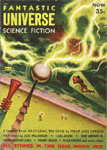 The Calm Man
The Calm Man
By Frank Belknap Long; Read by Gregg Margarite
1 |MP3| – Approx. 29 Minutes [UNABRIDGED]
Publisher: LibriVox.org
Published: May 19th, 2009
Dip the pen of a Frank Belknap Long into a bottle of ink and the result is always bound to be a scintillating piece of brilliant imaginative science fiction. And he’s done it again in the tortured story of Sally. From Fantastic Universe, May 1954.
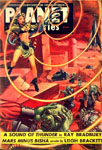 The Crystal Crypt
The Crystal Crypt
By Philip K. Dick; Read by Gregg Margarite
1 |MP3| – Approx. 42 Minutes [UNABRIDGED]
Publisher: LibriVox.org
Published: May 19th, 2009
Stark terror ruled the Inner-Flight ship on that last Mars-Terra run. For the black-clad Leiters were on the prowl … and the grim red planet was not far behind. First published in the January 1954 issue of Planet Stories.
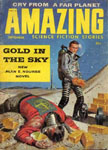 The Gift Bearer
The Gift Bearer
By Charles L. Fontenay; Read by Bellona Times
1 |MP3| – Approx. 13 Minutes [UNABRIDGED]
Publisher: LibriVox.org
Published: May 19th, 2009
This could well have been Montcalm’s greatest opportunity; a chance to bring mankind priceless gifts from worlds beyond. But Montcalm was a solid family man—and what about that nude statue in the park? From Amazing Science Fiction Stories’ September 1958 issue.
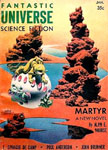 Out Of This World Convention
Out Of This World Convention
An essay by Forrest J. Ackerman; Read by Jozef Nagy
1 |MP3| – Approx. [CONVENTION REPORT]
Publisher: LibriVox.org
Published: May 19th, 2009
An eye-witness account of the 14th World Science Fiction Convention in session. First published in Fantastic Universe in January 1957.
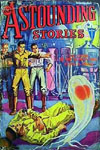 A Scientist Rises
A Scientist Rises
By D.W. Hall; Read by dana-allen
1 |MP3| – Approx. 18 Minutes [UNABRIDGED]
Publisher: LibriVox.org
Published: May 19th, 2009
All gazed, transfixed, at the vast form that
towered above them. From the November 1932 issue of Astounding Stories.
 Texas Week
Texas Week
By Albert Hemhuter; Read by Bellona Times
1 |MP3| – Approx. 11 Minutes [UNABRIDGED]
Publisher: LibriVox.org
Published: May 19th, 2009
One of the chief purposes of psychiatry is to separate fantasy from reality. It is reasonable to expect that future psychiatrists will know more about this borderline than the most learned doctors of today. Yet now and again even the best of them may encounter situations that defy all logic. From the January 1954 issue of Fantastic Universe.
 Year Of The Big Thaw
Year Of The Big Thaw
By Marion Zimmer Bradley; Read by Greg Weeks
1 |MP3| – Approx. 17 Minutes [UNABRIDGED]
Publisher: LibriVox.org
Published: May 19th, 2009
“In this warm and fanciful story of a Connecticut farmer, Marion Zimmer Bradley has caught some of the glory that is man’s love for man—no matter who he is nor whence he’s from. By heck, you’ll like little Matt.”
From the May 1954 issue of Fantastic Universe.
Posted by Jesse Willis
